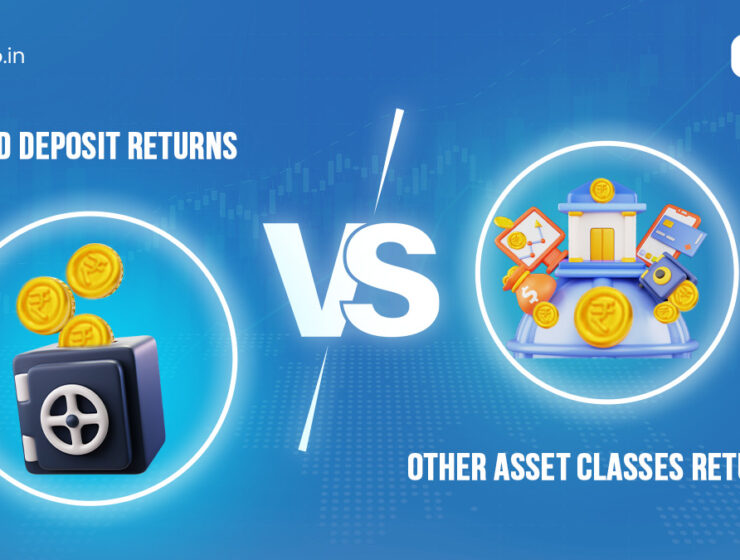

Emergency Fund as the word itself says it is a fund which can be utilised in case of an emergency. Emergency can come anytime. You will not know in advance what unforeseen event is going to knock on your door. It could be a job loss or medical emergency with any family member or yourself. In the worst case it could be an unexpected demise of an earning member in the family.
The interesting thing about emergencies is that you cannot predict what will come and when. For instance, nobody would have ever imagined the emergence of a highly contagious and deadly disease all over the world and that it would spread exponentially affecting global economies. The impact is not limited to health but also wealth. People are losing their job or experiencing substantial pay cuts or leave without pay. In such a situation, we realise how important it is for everyone to keep an Emergency Fund. It will help you to manage your expenses without borrowing or affecting your other ongoing investments.
Now that we realise the importance of having an Emergency Fund, let’s understand where we should invest this money.
The two most important factors to be considered while making an investment for emergency fund are –
1. Liquidity – One of the most crucial things is that this money should be readily available. Whenever you need, you should be able to encash it immediately. This means that you cannot invest this money in a PPF account or real estate. Because when you will need it, you will not be able to encash it because of no or low liquidity in these options. Therefore, look out for highly liquid assets.
2. Low Risk – The second most important thing is that this money should be invested in a low risk asset class. It implies that you should not be investing this money in the share market. Although the share market is highly liquid, the volatility is also very high. We would not want to withdraw from such investments by booking losses. You should know that equity market investment is for the long term and is highly volatile. So there might be a situation where you need money but the market is down so you will be forced to withdraw at a loss. This is happening currently with investors who don’t have any emergency corpus.
So based on these two factors, what are the options available to us?
1. Saving Bank Account
Many people prefer to keep emergency funds in their savings bank account. No doubt, it is highly liquid but it gives hardly any returns. Currently, the saving bank accounts are offering 3-5% p.a. which is not even covering the inflation cost. So it’s not a good decision to keep your entire money in a savings bank account.
2. Fixed Deposit
A fixed deposit (FD) is a financial instrument provided by banks, that provides investors with a higher rate of interest than a regular savings account, until the given maturity date. The defining criteria for a fixed deposit are that the money cannot be withdrawn from the FD.
The level of liquidity is low. But you have the option to withdraw with the penalty. To compensate for the low liquidity, FDs offer higher rates of interest than savings accounts.
3. Liquid Mutual Funds
A liquid fund is a type of mutual fund which invests primarily in money market instruments, like treasury bills, commercial papers, certificate of deposits and term deposits. They allow Investors to park their funds for a few days or months as they have maturities up to 91 days.
Liquid funds can be made liquid at any time and earn returns for the holding period. Because they earn a return from market instruments, liquid fund’s returns can rise or fall depending on the market rates. For very short debt, Market interest depends on the liquidity situation.
Read More :- Importance of Continuing SIPs Amid COVID-19
Let us compare Liquid Mutual Funds with Fixed Deposits
1. Liquid funds are easily accessible as compared to bank FDs. Bank FDs would penalize you for premature withdrawal. Liquid funds do not have exit loads.
2. As per past records, liquid funds prove to give better returns than fixed deposits. It would range between 6% to 8% per annum. On the other hand, bank fixed deposits offer returns depending on the tenure. Lower the tenure, lower the interest rates.
3. Since liquid funds invest in short-term securities, it has lowest interest rate risks. When interest rates fall, bond prices go up. When interest rates rise, bond prices fall. The negative relation between bond prices and interest rates is stronger for long term bonds. This means that the longer the maturity of a bond, the more it responds to changes in market yields. Since a liquid fund invests only in short term securities, it’s market value does not respond much when interest rates change in the market.
4. Tax treatment: If you sell them before 3 years, any gain needs to be added to your income and you need to pay income tax based on your tax bracket. Fixed deposits are also taxed the same way even if it is more than 3 years. However, if you redeem liquid mutual funds after 3 years so will have to pay tax of 20% with indexation benefit. This will be fruitful for investors in the higher tax bracket.
Conclusion
If you want to park your money for a short term or immediate requirements, liquid funds would be the best bet for you. Consider the above factors before investing in such funds. Investors can choose good liquid mutual funds based on past years performance, low expense ratio, high Assets under Management (AUM) and well diversified portfolio.
So don’t wait any longer, create your emergency fund today by investing in Liquid Mutual funds. You can do this by downloading the Fintoo App.
Related Posts
Stay up-to-date with the latest information.


